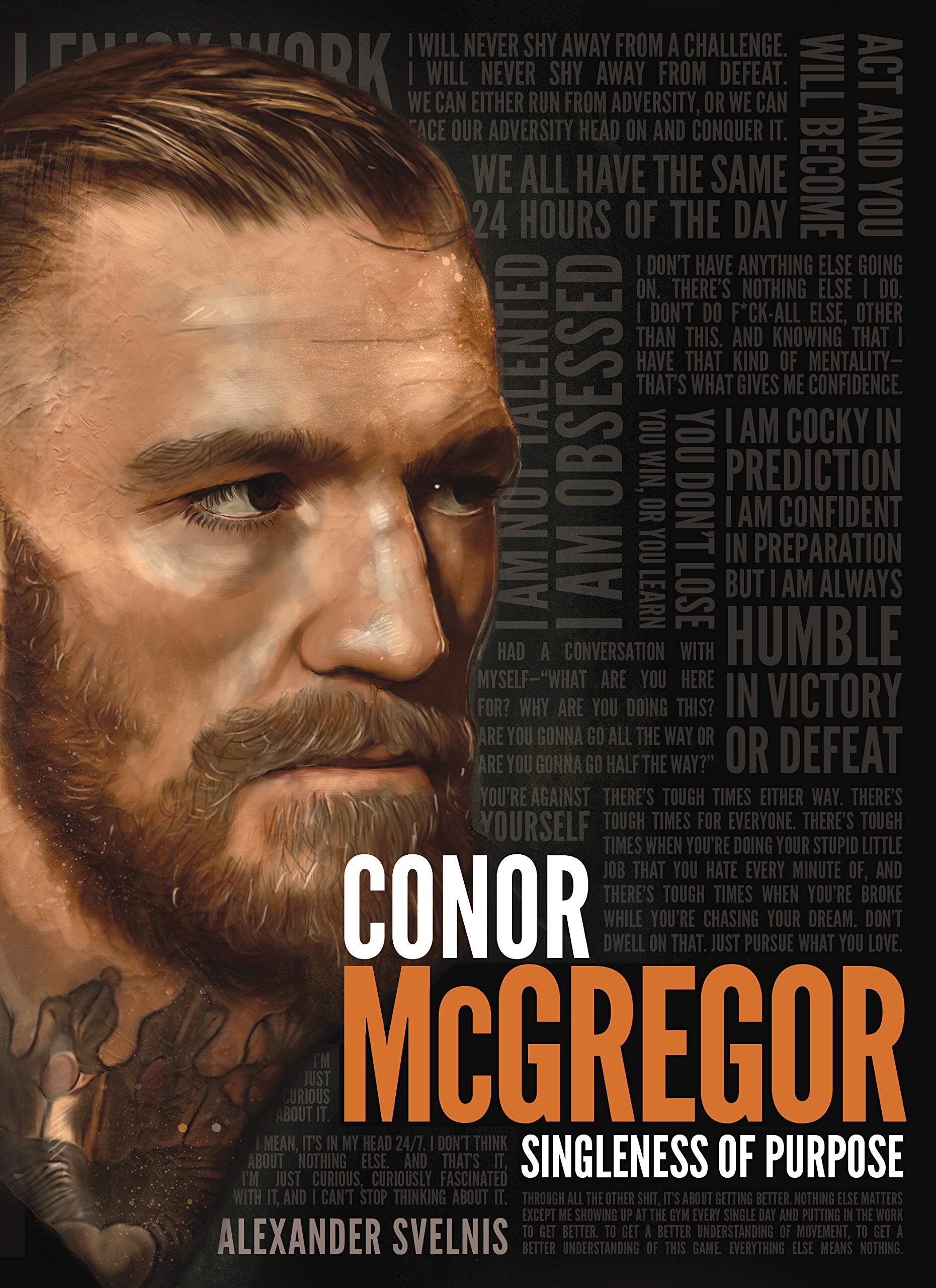“As much as anything, it has been Conor’s ability to absorb the wisdom of others that has transformed him into who he is today” (pg 6).
“Anyone who allows themselves to be controlled by their impulses and momentary desires will be limited in what they can achieve” (pg 11).
“It is only through deliberate efforts repeated day after day, week after week, month after month, that a person can work towards self-mastery” (pg. 11).
“The truth is that there is no single moment when everything comes together. Self-mastery is a process of constant rededication, one that often takes many years” (pg 15).
“We must get absolute freedom from everything that chokes our ambitions and makes us satisfied with mediocrity. We must persistently, painfully, and with all the willpower we can summon, eliminate our bad habits and build new ones that will bring us to the future we desire” (pg 16).
“Our preparation is more important than our opportunities. Our preparation makes our opportunities'“ (pg 18).
“We should focus less on the benefits of the action and more on the momentum created by performing it regularly” (pg 19).
“What leads to achievement is not so much brilliancy of intellect and vastness of resources, but persistency of effort and constancy of purpose” (pg 33).
“The answer is not out there my friend. The answer’s in here, in your heart, in your belief” (pg 41).
“Fear is one of the greatest enemies of a person’s advancement. it suggests caution at the moment everything depends on boldness.
If you limit your choices only to what seems possible or reasonable, you disconnect yourself from what you truly want, and all that is left is a compromise
People of courage and action can take wrong steps and make mistakes - sometimes serious ones. But in a lifetime they accomplish far more than the timid, negative individual who has not enough belief in themselves to trust in their potential” (pg 42).
“Every moment that runs through a person’s mind has the power to contribute to or detract from shaping the reality they desire. Whatever we think about ourselves, whatever we choose to believe about our possibilities, is constantly reinforcing an atmosphere of either success or failure” (pg 43).
“Negativity kills determination, destroys ambition, ruins hope and plans. It makes us traitors to the things we long to do” (pg. 44)
“The person with absolute faith in their abilities is almost always the one most likely to triumph” (pg 45).
I will never shy away from a challenge. I will never shy away from defeat . . . we can either run from adversity, or we can face our adversity head-on and conquer it, and that’s what I plan to do . . . I’ll face it . . . I’ll learn from it (pg 54).
“Few things seem impossible for the person who never weakens under trials or defeats, who pushes forward when everyone else has surrendered, who gets up with greater resolve each time they are knocked down. Anyone who can smile confidently when everything has just gone against them shows that they have the makings of greatness, for no ordinary person can do this” (pg 56).
“Everywhere we see people doing small, trivial things when they have within them great possibilities'“ (pg 69).
“Both apathy and ambition are contagious. No matter how strong our will, we will always take hold of the spirit that dominates in our surroundings. It will make all the difference if we are with people who encourage and inspire us, rather than with those who throw temptations in our path and distract us from our purpose” (pg 70).
“Everything can be taken from a man but one thing: the last of the human freedoms - to choose one’s attitude in any given set of circumstances” (pg 79).
Purposeful Practice, McGregor believes, "is a process that makes refinements through repetition . . . and looks something like this:
Identify a weakness in your domain or expertise.
Form a clear mental picture of what it would look and feel like to gain the skill that would fill in that weakness.
Break the new skill down into its most basic components.
Find or design activities that target those components.
Perform those activities with intense focus.
Use various forms of feedback to refine and repeat steps 2 - 5 until each component can be reliably performed.
Carefully integrate each component until they feel natural and will not be forgotten (pg 96).
“What each of us will amount to in this world depends absolutely on the way we spend our time” (pg 116).
Grade: A
A must read for anyone. Packed full of great advice, inspiration, and clarity of how to endure difficulties and pursue dreams. Simple read. Powerful message.
For more on . . .
-N- Stuff : Books : Reading Log







